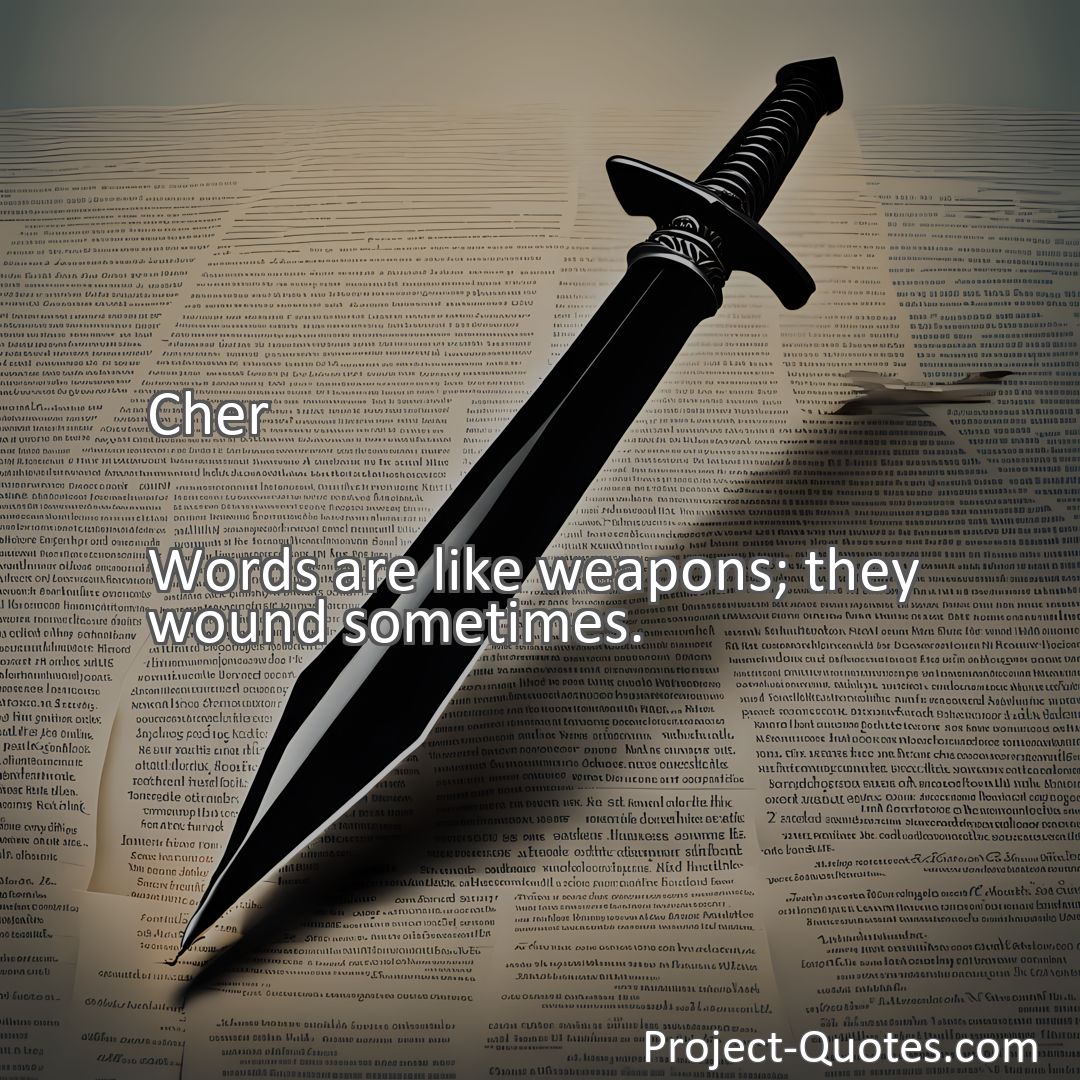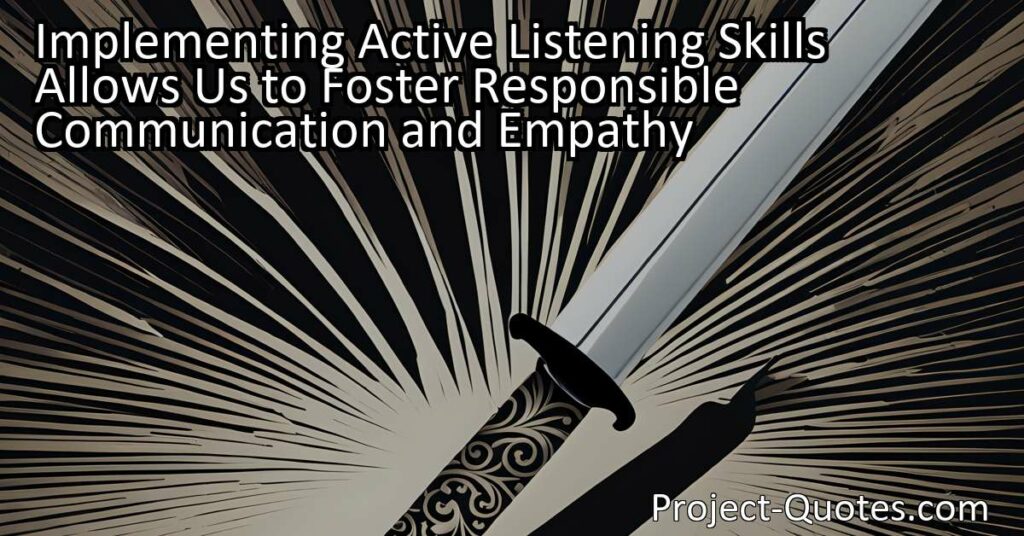Words are like weapons; they wound sometimes.
Cher
Implementing active listening skills allows us to foster responsible communication and empathy. By actively listening to others, we can engage in meaningful conversations and validate their perspectives. This promotes healthier relationships, minimizes misunderstandings, and cultivates a more compassionate and supportive environment.
Table of Contents
Meaning of Quote – Words are like weapons; they wound sometimes.
Introduction:
Words hold immense power. They have the ability to shape our thoughts, emotions, and even our lives. Cher, the renowned singer and actress, once said, “Words are like weapons; they wound sometimes.” In this quote, she beautifully captures the impact that words can have on us. Words possess the unique ability to hurt us deeply, leaving wounds that often take time to heal. By exploring this idea further, we can understand the significance of using words responsibly, fostering positive communication, and promoting empathy in our everyday interactions.
The Power of Words:
Just as weapons have the potential to cause physical harm, words possess the power to inflict emotional wounds. When used recklessly or maliciously, words have the ability to deeply affect individuals, leaving scars that may never fade. The wounds caused by hurtful speech can range from a temporary sting to long-lasting emotional trauma. It is crucial to recognize the weight our words carry and to be mindful of how we choose to express ourselves.
The Ripple Effect:
It is essential to remember that the impact of our words extends far beyond the initial encounter. Cher’s quote reminds us that words have the potential to wound others, and these wounds can create a ripple effect. Negative words can spread like wildfire, perpetuating a cycle of hurt and negativity. Conversely, positive and uplifting words have the power to inspire, encourage, and heal. By consciously choosing our words, we can contribute to a more compassionate and supportive environment.
The Role of Empathy:
Empathy plays a pivotal role when considering the impact of our words. Cher’s metaphorical comparison between words and weapons prompts us to reflect on the consequences of our speech. Before uttering hurtful words, we should pause and imagine how we would feel on the receiving end. Empathy allows us to connect with others’ emotions and acknowledge the potential harm our words might cause. By cultivating empathy, we can develop a deeper understanding of the impact our words can have and strive to use them more responsibly.
Responsible Communication:
In order to reduce the wounds caused by our words, it is crucial to prioritize responsible communication. This involves being aware of our audience, choosing words carefully, and actively listening to others. By tailoring our words to specific situations and individuals, we can ensure that our message is clear and respectful. Implementing active listening skills allows us to engage in meaningful conversations, validating and understanding others’ perspectives. Responsible communication fosters healthier relationships, enhancing understanding and minimizing hurtful misunderstandings.
Teaching Positive Communication:
Understanding the potential harm of words is crucial, especially when imparting this knowledge to younger generations. By addressing the concept of Cher’s quote in a classroom setting, we can equip students with the tools necessary for positive communication. Teaching kids the power of words empowers them to be more mindful of their language, promoting empathy and compassion in their interactions. Engaging in activities that encourage open dialogue, role-play, and peer mediation can foster a safe and inclusive environment where students learn to express themselves without causing harm.
The Media’s Role:
In the digital age, where communication happens at an unprecedented speed, the media undeniably plays a significant role in shaping public discourse. Cher’s quote serves as a reminder to both the media and consumers of media to be mindful of the words used and consumed. Sensationalism, gossip, and negative language in media outlets have the potential to perpetuate harmful narratives and cultivate a culture of hurtful rhetoric. By supporting media sources that prioritize responsible and empathetic language, we can collectively foster a more positive and inclusive society.
Healing and Forgiveness:
While words can wound, it is also important to recognize the potential for healing and forgiveness. Cher’s quote speaks to the power of words to hurt, but it also acknowledges their immense potential for change. Just as words have the power to wound, they also have the power to heal, soothe, and mend broken relationships. Choosing to express remorse, empathy, and understanding through our words can lead to forgiveness and reconciliation.
Conclusion:
Cher’s quote, “Words are like weapons; they wound sometimes,” offers a thought-provoking insight into the power of language. It reinforces the importance of using our words responsibly, empathetically, and with awareness of their impact. Words have the ability to wound and heal, and it is crucial to remember this in our daily interactions. By fostering responsible communication, promoting empathy, and recognizing the potential consequences of our words, we can contribute to a world where wounds are minimized, and understanding and compassion thrive.
I hope this quote inspired image brings you hope and peace. Share it with someone who needs it today!


